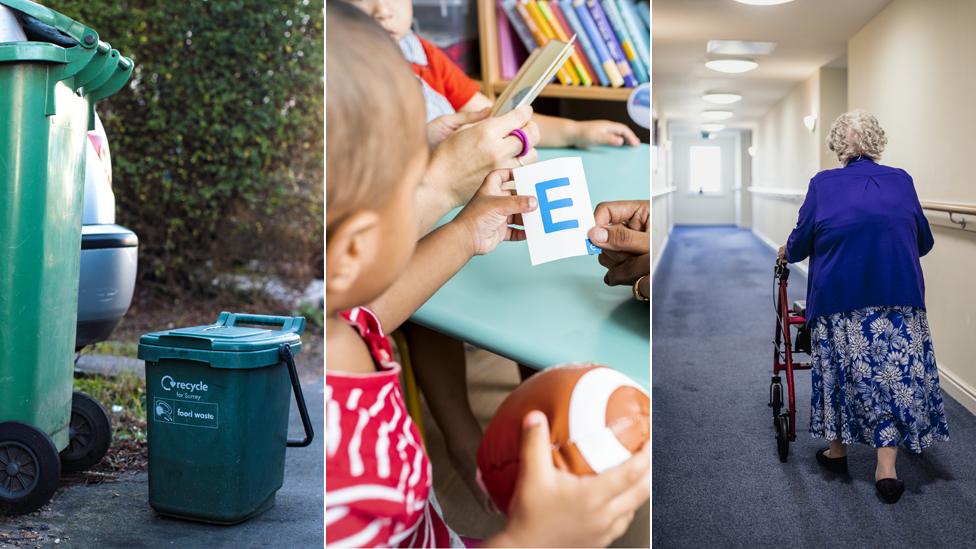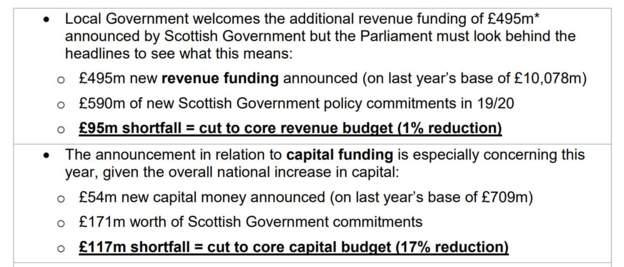Cosla: Scottish councils need £300m 'just to stand still'
- Published

Cosla said there would be cuts in every single local council if the shortfall in funding was not addressed
Scottish councils need an extra £300m of funding just to "stand still", local government body Cosla has told MSPs.
Gail Macgregor, Cosla resources spokeswoman, said councils were currently absorbing about £200m of "inflationary pressure".
The body has also identified a £95m "shortfall" to its funding, external in the Scottish budget.
However, Finance Minister Kate Forbes said the budget settlement provided a real-terms increase in funding of 3%.
Ms Macgregor told the Local Government and Communities Committee that even if the Scottish government addressed the £95m shortfall, there would be cuts in every single Scottish council.
"To cover inflation and the shortfall - just to enable us to standstill, not to be doing anything particularly exciting in respect of development and moving forward with digital agendas or climate change agendas - we need about £300m," she said.
The councillor acknowledged to MSPs that the recent draft budget contained an increase in funding to local councils - but claimed that new Scottish government policy commitments had not been fully-funded.
She said the £95m shortfall amounted to a 1% cut to revenue budgets, with councils also having to cope with a 17% cut to capital budgets.
"We've all dealt with austerity but we're 10 years on," she said. "We know that the settlement coming from the UK government is an increase on previous years and we're simply not seeing that and we haven't even dipped into capital yet."
"Knowing that there is additional money coming to Scotland, it is mildly depressing to know that we're still very much in a cuts situation."

Cosla says that new Scottish government policy commitments are not being fully funded in their budget settlement
Earlier in the committee hearing, Cosla's acting head of resources Vicki Bibby said discussions with the Scottish government around the £95m shortfall were "ongoing".
Responding to Cosla's comments, Ms Forbes told the committee that the Scottish budget delivered a funding package of £11.3bn to local authorities, which she said was an additional £494.4m of funding for day-to-day services.
"That builds on our funding to local authorities last year and alongside that increased revenue funding this year, there will also be the flexibility to increase council tax by up to 3% in real terms," she said.
"So taken together, the councils have a potential to access an additional £629.3m of revenue funding for essential frontline services."